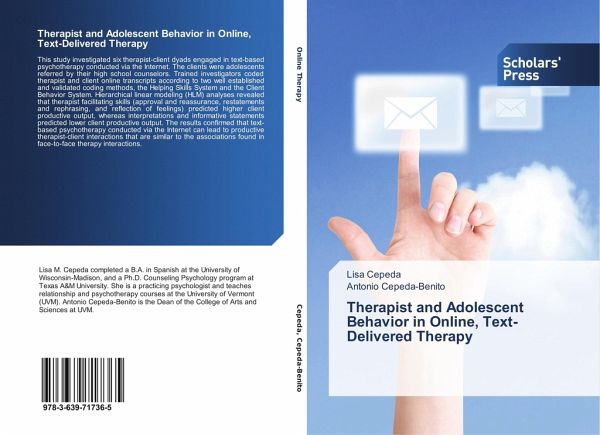
Therapist and Adolescent Behavior in Online, Text-Delivered Therapy
Versandkostenfrei!
Versandfertig in 6-10 Tagen
40,99 €
inkl. MwSt.

PAYBACK Punkte
20 °P sammeln!
This study investigated six therapist-client dyads engaged in text-based psychotherapy conducted via the Internet. The clients were adolescents referred by their high school counselors. Trained investigators coded therapist and client online transcripts according to two well established and validated coding methods, the Helping Skills System and the Client Behavior System. Hierarchical linear modeling (HLM) analyses revealed that therapist facilitating skills (approval and reassurance, restatements and rephrasing, and reflection of feelings) predicted higher client productive output, whereas i...
This study investigated six therapist-client dyads engaged in text-based psychotherapy conducted via the Internet. The clients were adolescents referred by their high school counselors. Trained investigators coded therapist and client online transcripts according to two well established and validated coding methods, the Helping Skills System and the Client Behavior System. Hierarchical linear modeling (HLM) analyses revealed that therapist facilitating skills (approval and reassurance, restatements and rephrasing, and reflection of feelings) predicted higher client productive output, whereas interpretations and informative statements predicted lower client productive output. The results confirmed that text-based psychotherapy conducted via the Internet can lead to productive therapist-client interactions that are similar to the associations found in face-to-face therapy interactions.












